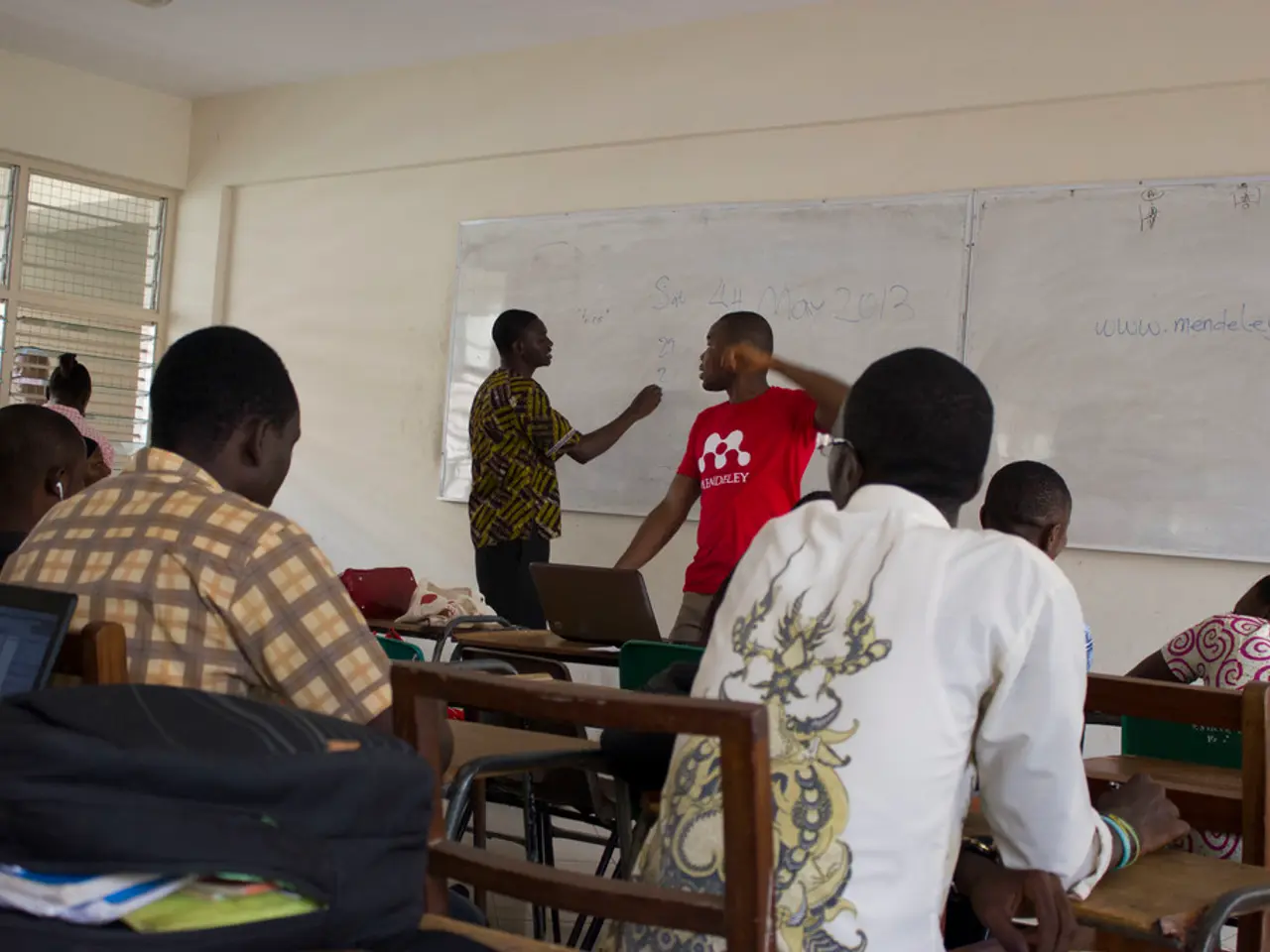A compilation of twenty-three critical objectives for instructors to optimize classroom performance and teaching efficiency
In the ever-evolving world of education, effective teacher professional development is crucial for fostering a supportive and inclusive learning environment. Here are some key areas to focus on for teachers to grow, collaborate, and achieve their goals.
Effective Teacher Professional Goals
- Integrating Technology: Utilizing new educational technology can enhance lesson planning, content creation, and student progress tracking. This can involve incorporating tools like interactive whiteboards, educational software, or online learning platforms.
- Collaboration and Networking: Working with other faculty members can help share best practices, improve lesson plans, and enhance student engagement. Networking with teachers from diverse backgrounds can provide valuable insights and resources.
- Classroom Management and Lesson Planning: Establishing effective classroom management routines and developing efficient lesson planning strategies are essential, particularly for new teachers. Experienced teachers can focus on refining these skills and mentoring others.
- Student-Centered Goals: Aligning goals with student needs is vital. This could focus on areas like literacy development or subject-specific skills. Ensure that goals are specific, measurable, achievable, relevant, and time-bound (SMART) to track progress effectively.
Strategies for Achieving These Goals
- SMART Goal Framework: Use the SMART framework to set clear, actionable goals. This involves specifying what you want to achieve, how you will measure success, and setting deadlines for completion.
- Professional Learning Communities (PLCs): Engage in PLCs to collaborate with peers, receive feedback, and refine teaching practices. This collaborative environment fosters a culture of continuous improvement.
- Evidence-Based Practices: Incorporate evidence-based methods into professional development plans. This includes focusing on results-driven, standards-based, and sustained professional development activities.
- Reflection and Adaptation: Regularly reflect on teaching practices and adapt goals based on student feedback, assessment data, or new educational research. This ensures that teaching strategies remain relevant and effective.
- Mentorship and Coaching: Seek mentorship from experienced educators for guidance and support in achieving professional goals. Coaching programs can provide structured feedback and guidance.
By focusing on these goals and strategies, teachers can enhance their professional development, improve their teaching practices, and ultimately boost student outcomes. Whether it's through incorporating writing prompts into lessons, fostering a positive and inclusive classroom culture, or utilising technology effectively, each step brings us closer to creating a more engaging and effective learning environment for all students.
- Motivation for Goal Setting: A strong desire to enhance teaching practices can act as a driving force in setting goals, encouraging teachers to continuously strive for personal growth and improved student outcomes.
- Goal Planning in the Context of Lifestyle: Effective goal planning can extend beyond the classroom, encompassing holistic growth strategies that align with a teacher's lifestyle, ensuring long-term professional development.
- Technology as a Catalyst for Productivity: The integration of technology in education aids in streamlining daily tasks, facilitating productivity, and fostering cutting-edge teaching strategies.
- Education-and-Self-Development in a Digital Age: The blending of education and self-development within the realm of technology offers a wealth of resources for teachers seeking to expand their knowledge and improve their craft.




